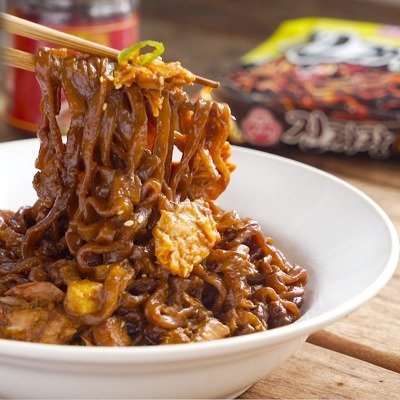
With the pandemic continuing to show face well into 2021, many Koreans have relied heavily on instant foods due to the amount of time they are now spending at home. However, the popularity of Korean instant noodles particularly skyrocketed not just in Korea but in many parts of the world as well. Last year, South Korea exported about $674 million USD of instant noodles according to Korea Customs Service. This was almost a 12% increase from 2020.
China had the biggest demand with an export demand of $149.9 million USD then the United States with an export demand of $81 million USD.
Social media platforms such as Tiktok, Instagram and YouTube contributed greatly to this as many viral videos of ramyun recipes have surfaced. Whether it’s adding milk to spicy ramyun broth or mixing Kewpie mayonnaise and egg with the ramen packet seasoning, people are loving how convenient, innovative, and simple instant noodles are when it comes to everyday meals.
Specifically Korean companies such as Nongshim and Samyang have seen a sharp upwards trend. Besides the well-loved Shin Ramyun, people are now starting to try different flavor palettes. A few years ago, Samyang’s Buldak noodles saw a surge in popularity due to an internet challenge called “the Fire Noodle Challenge” where people would attempt to consume an entire packet of spicy ramyun. Mukbang personalities from all over the world would showcase the many flavors Samyang had to offer within their Buldak collection, some of the popular ones being the original Buldak, carbonara, and the two-times (2x) spicy Buldak.
Also with Korean entertainment gaining international recognition, overseas fans have begun to show interest in Korean food, introducing themselves to the cuisine with instant foods such as ramyun. In Netflix’s “Squid Game,” there is a scene where Lee Jung Jae’s character enjoys ramyun by eating it as a raw snack. While this has been a common practice in South Korea for many years, international fans have only recently learned that this is another way to consume instant noodles. Even in the infamous “Jjapagurri” (or Ram-don, for western audiences) scene in Bong Joon Ho’s “Parasite,” we saw that ramyun can be served with a hint of luxury as Lee Jung Eun’s character prepares a mix of Jjapaghetti and Neoguri ramyun with steak.
As Korean culture continues to be well-received by people overseas, we can expect this trend to continue in an upwards trajectory.
Julie kim
Asia Journal

